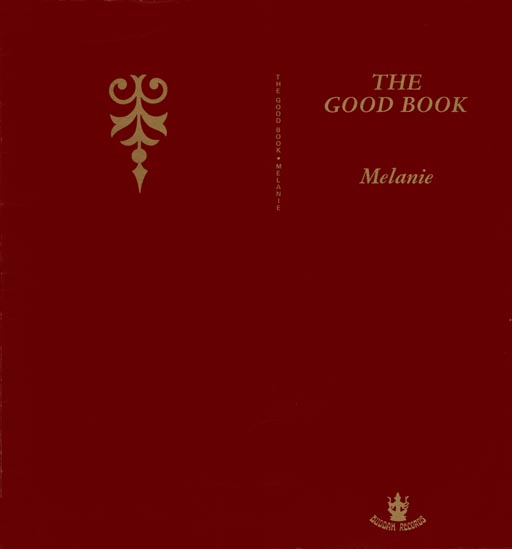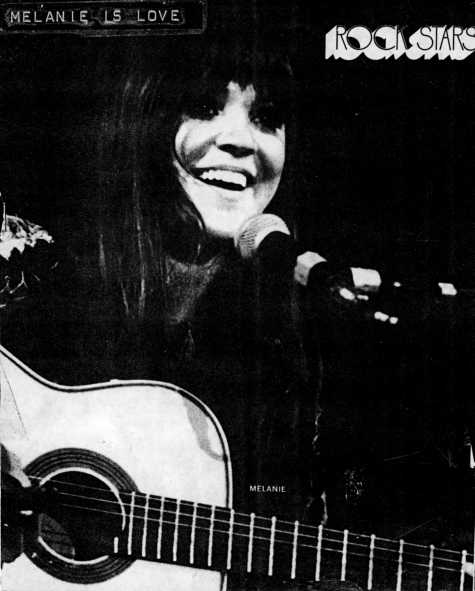
May 1971

unknown sources
On this record Melanie sings on-key more than she ever has. The songs are all about the same……..
It annoyed me to some extent to see an excellent rock 'n' roll magazine dismiss this new Melanie album with one piffling, cynical little paragraph.
Okay, so it's hip to ignore this little lady, and like most hip things, that train of thoughts strikes me as childish and pseud to a sickening extent.
Well, now that's over with, I'll go out and say what another delightful album this is. I can understand to a certain extent why Melanie is stripped bare for criticism - maybe it's because of the sentimentality, the pretty song, or the imagery that could easily be conjured up by the eyes of a child.
Melanie's songs contain all these things - plus a diary of what is happening to her now. To all extents and purposes they are honest, and at a time like this, it seems stupid to rap honesty.
I find "The Good Book" the most soul searching of her collections yet. She becomes a little depressing at times, but it's the sort of depression I can associate with. Then there's things like "Babe Rainbow" - the most beautiful song on the album, and one of her most thoughtful compositions to date. "Birthday Of The Sun" is another warm, cuddly song, and "Nickel Song" is really what it's all about.
Melanie may still be a flower child, and maybe a symbol of charismic youth - yet I dig her songs - and what on earth's wrong with sun and flowers anyway?……
MELANIE: "Babe Rainbow," from the album "The Good Book" (Buddah).
Oy, Oy, those Peruvian pipes again. God, I know who this, but I'm not sure. Is it Melanie? Oh yes, she's grown up. It was difficult to recognise the voice; 'cause she sounds a lot more mature. You know I had a strange thing about Melanie. I heard her first album, and really totally flipped over her. I thought she was the answer to Nina Simone
But then I played it almost non-stop for about two weeks, ant it fell down an awful lot. The way she sang " Tambourine Man " didn't come over. It's just that little girl voice I can't stand it gives me a twitch. She can sing some beautiful songs though. This is nice She can put over things well at times, and I absolutely adore the arrangements on her albums, really nice lyrics as well. I've never seen her live and she's probably very good, but on record her emotion and feeling to me lacks truthfulness. It's sometimes too full of instant emotion, and I tend to question that. I always get the feeling that basically she's very lonely, I mean she's always singing about the boys going out, without her.

And there, in essence, is our revolution: masses of kids who only want to be loved. It's all food for thought and songs, as are all Melanie's experiences with audiences, with the music business, with living. She incorporates them and packages them forcefully into songs which turn into albums.